After leaving the coast, Nathan & I headed east along the winding Route 101 -- easily the most beautiful highway I have traveled -- to the inland forests and lakes of the Olympic Peninsula.
RAINFORESTS
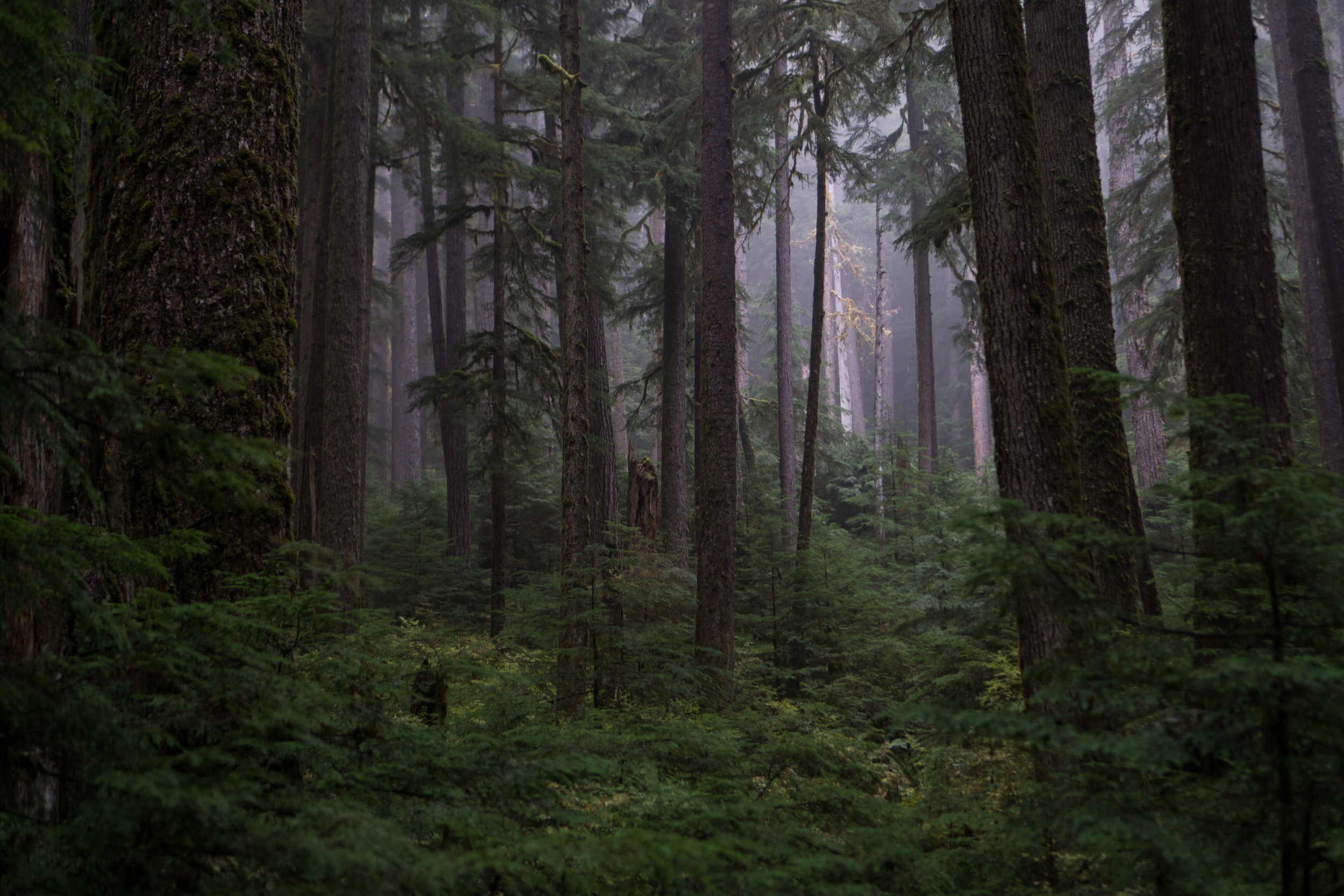
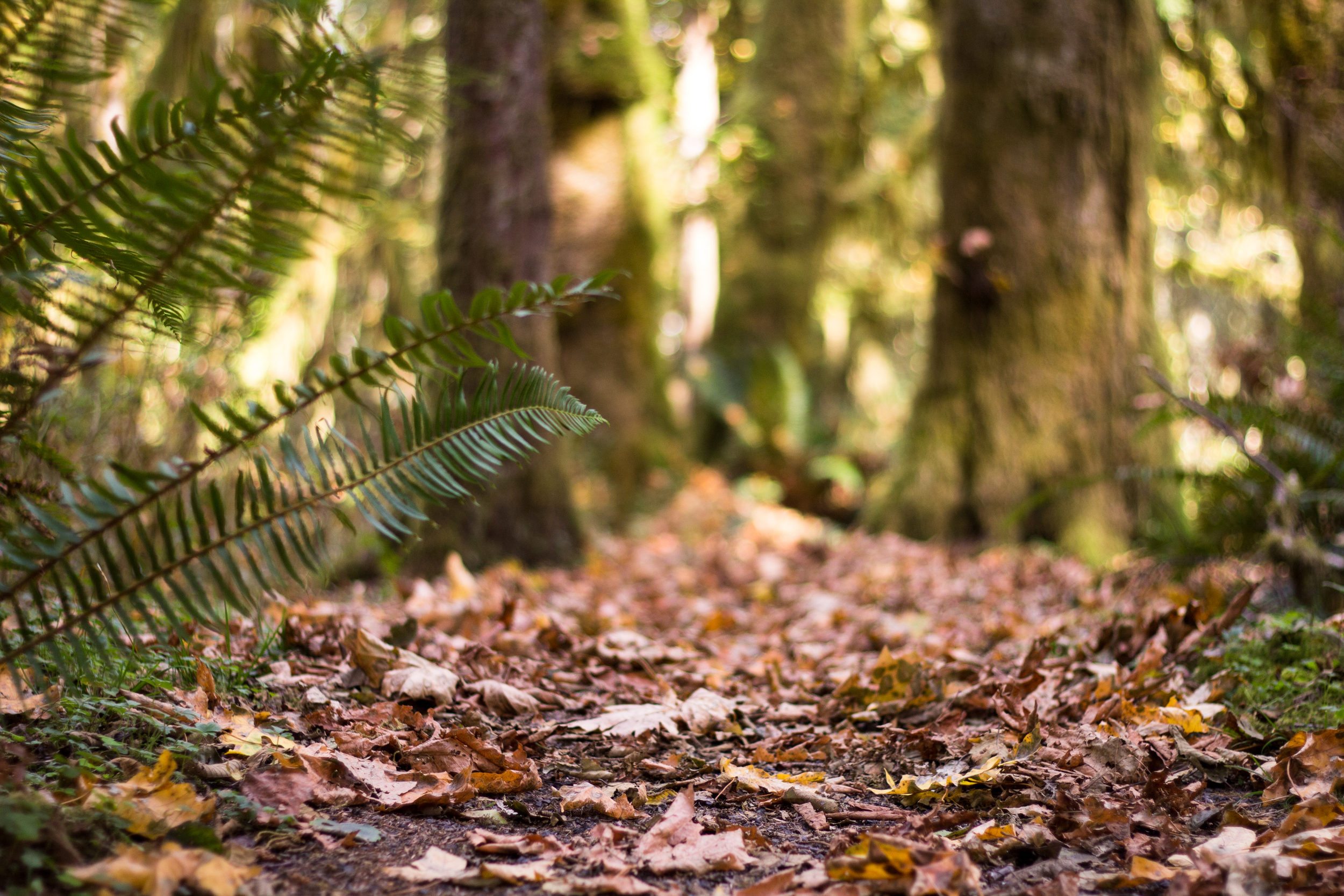
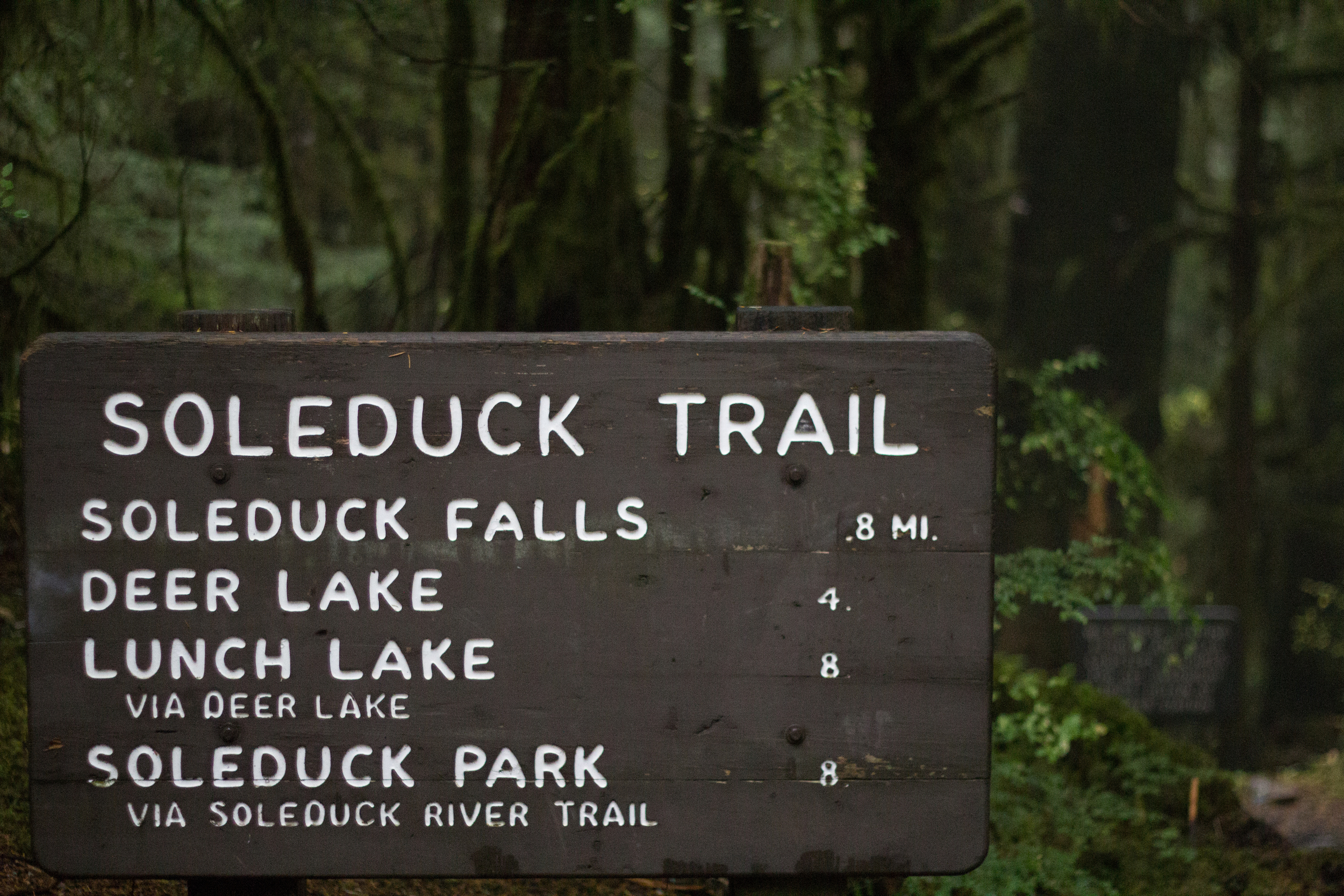
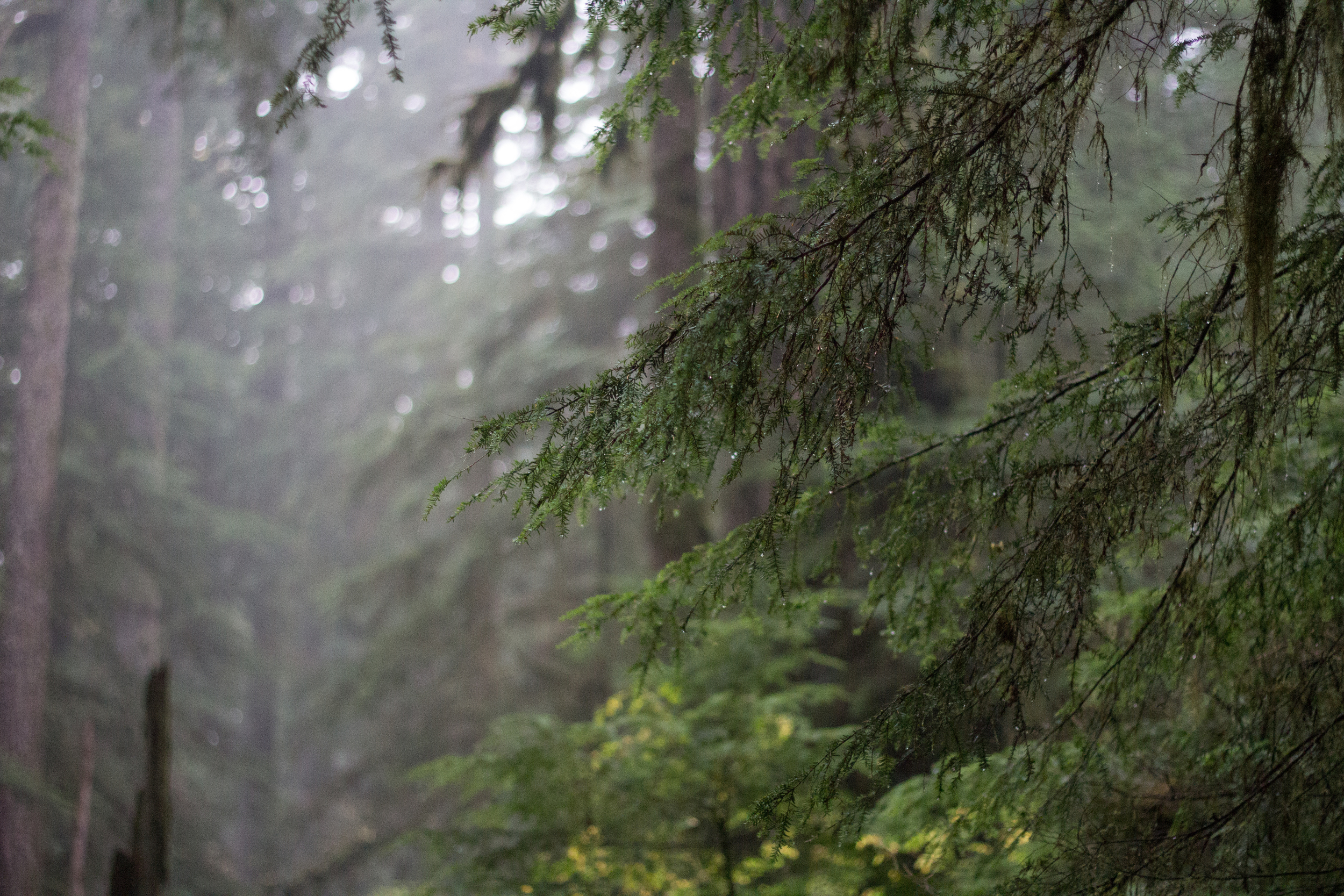
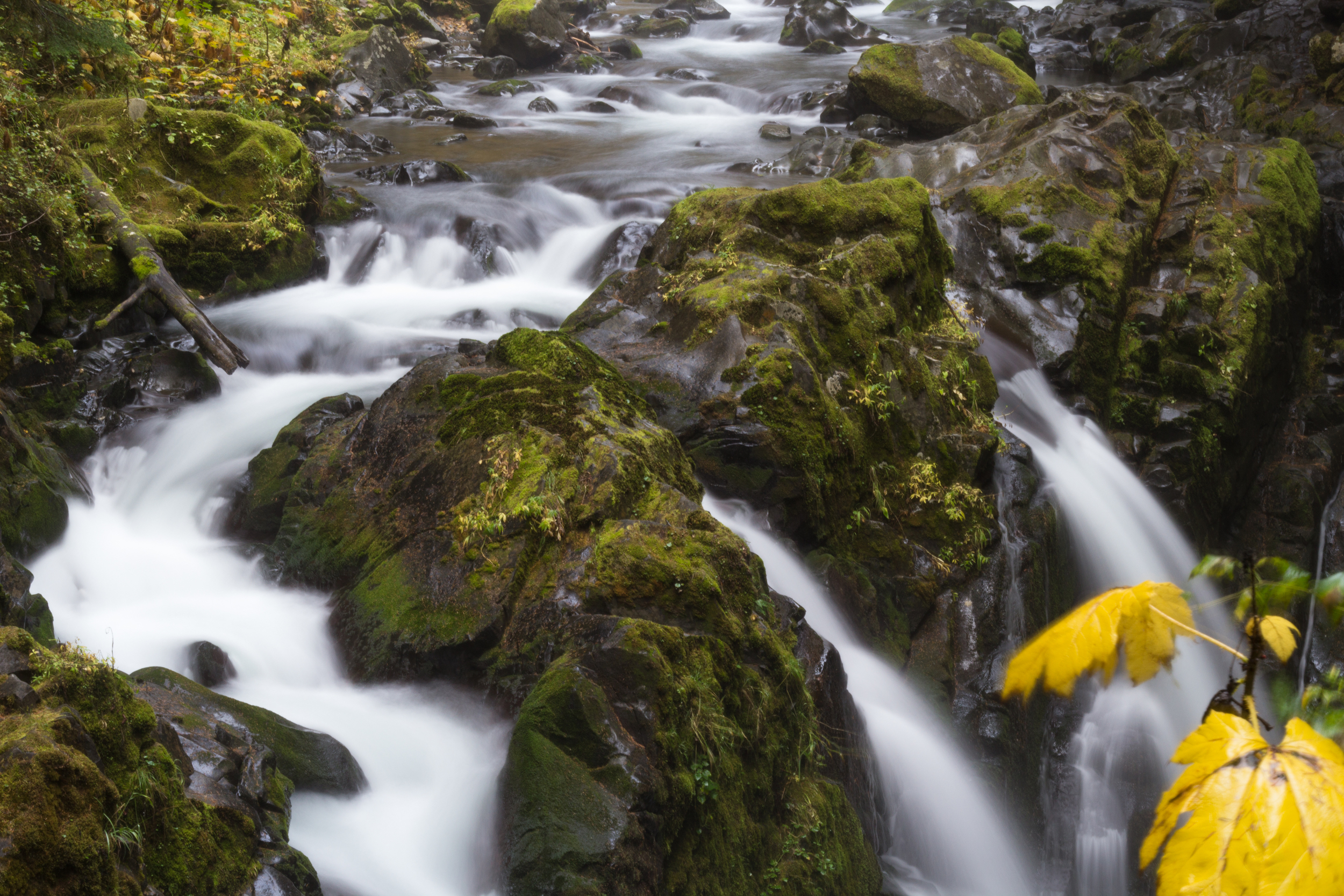
The Hoh Rainforest is a sprawling thing, dense and atmospheric and, on brighter and warmer afternoons, suffused with an otherworldly golden light. You half expect to become surrounded by fairies and nymphs while you crush brittle fallen leaves underfoot. Northeast of the Hoh region are the dewy, deep and eerie Sol Duc (or Soleduck) forests, chilly and silent and full to the brim with mist. Nestled in its canyon depths are the Sol Duc Falls, which rush over mossy rocks shimmering in the dampness. Sol Duc leaves you breathless. It is a pocket out of time.
LAKE CRESCENT & ENVIRONS
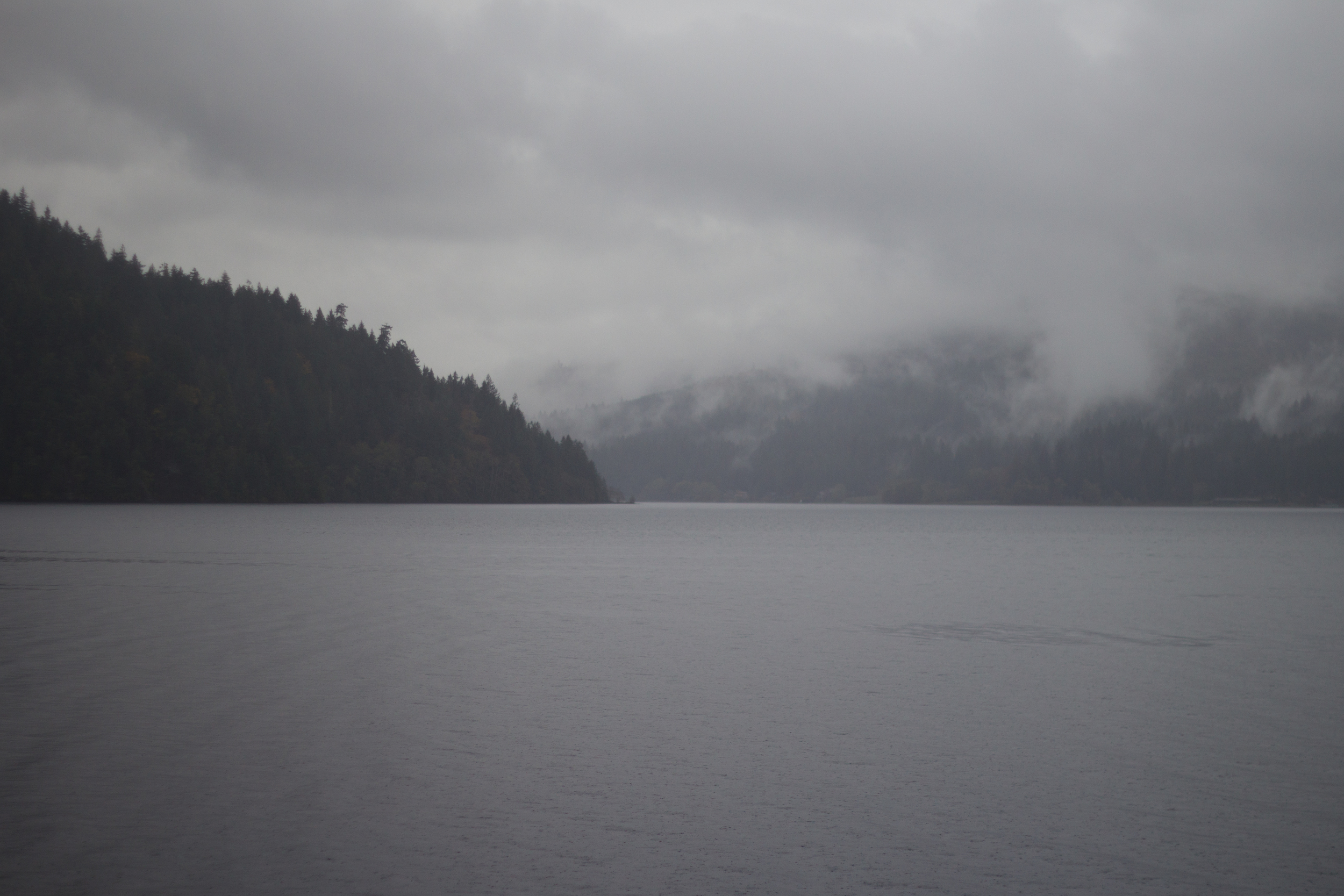
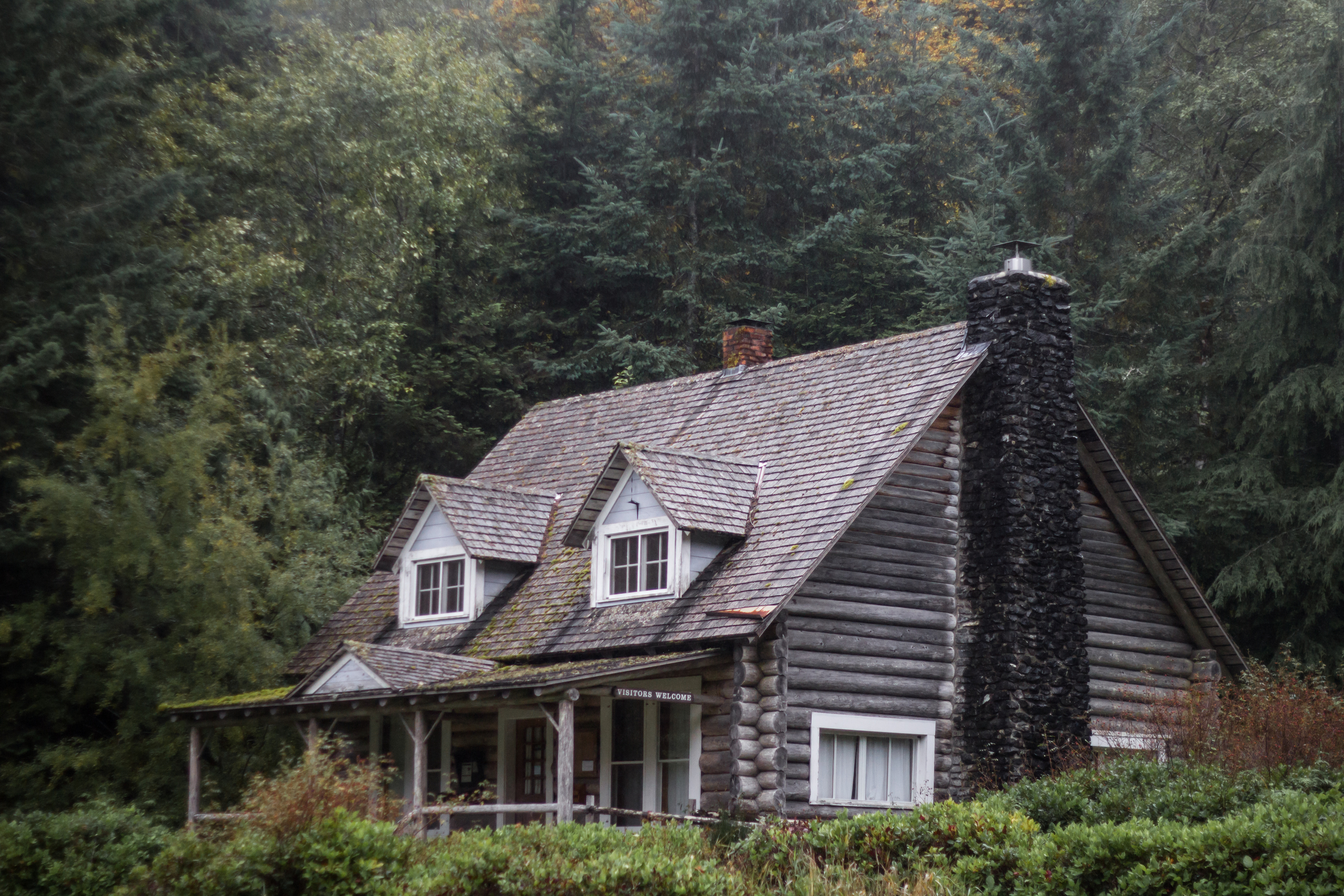
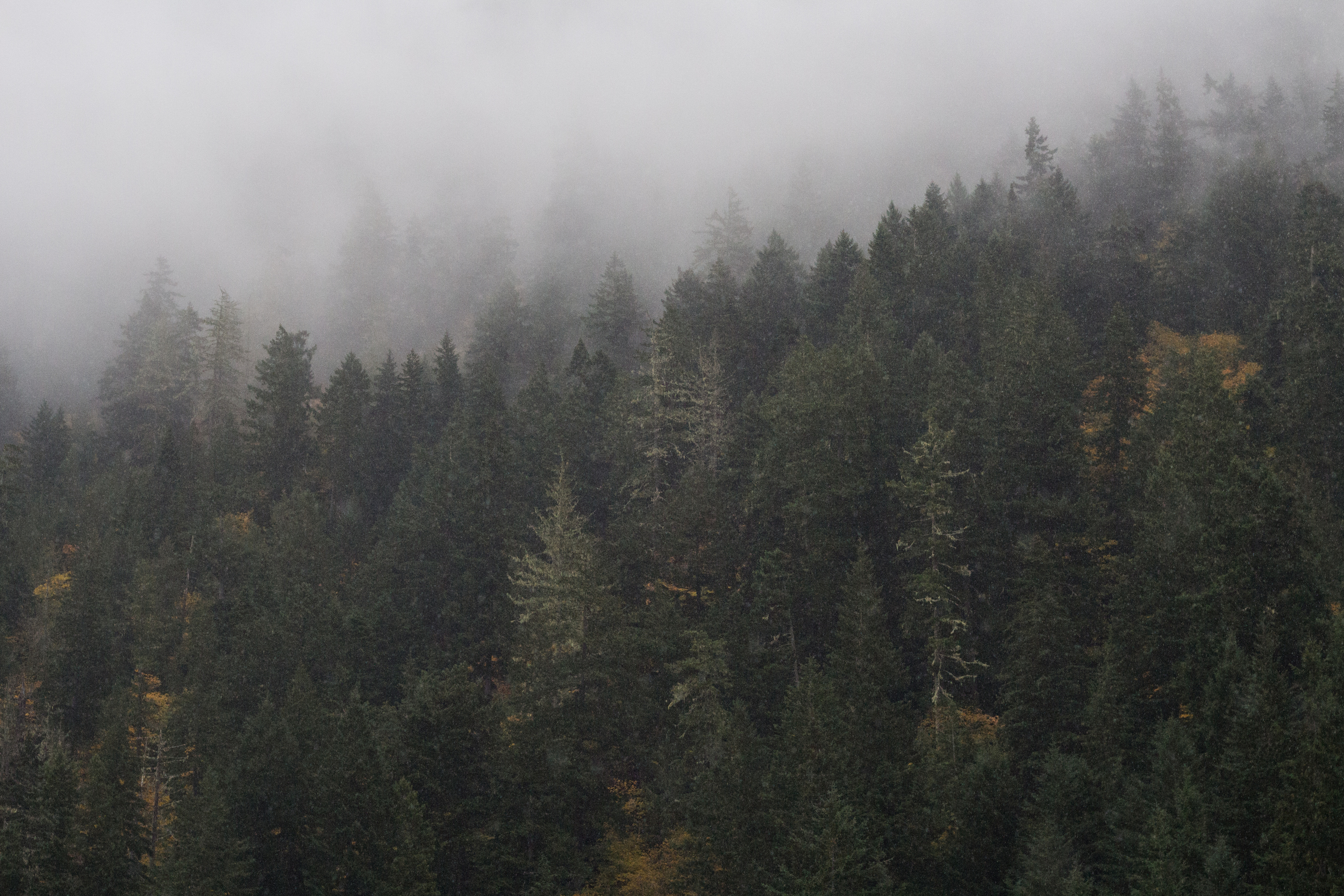
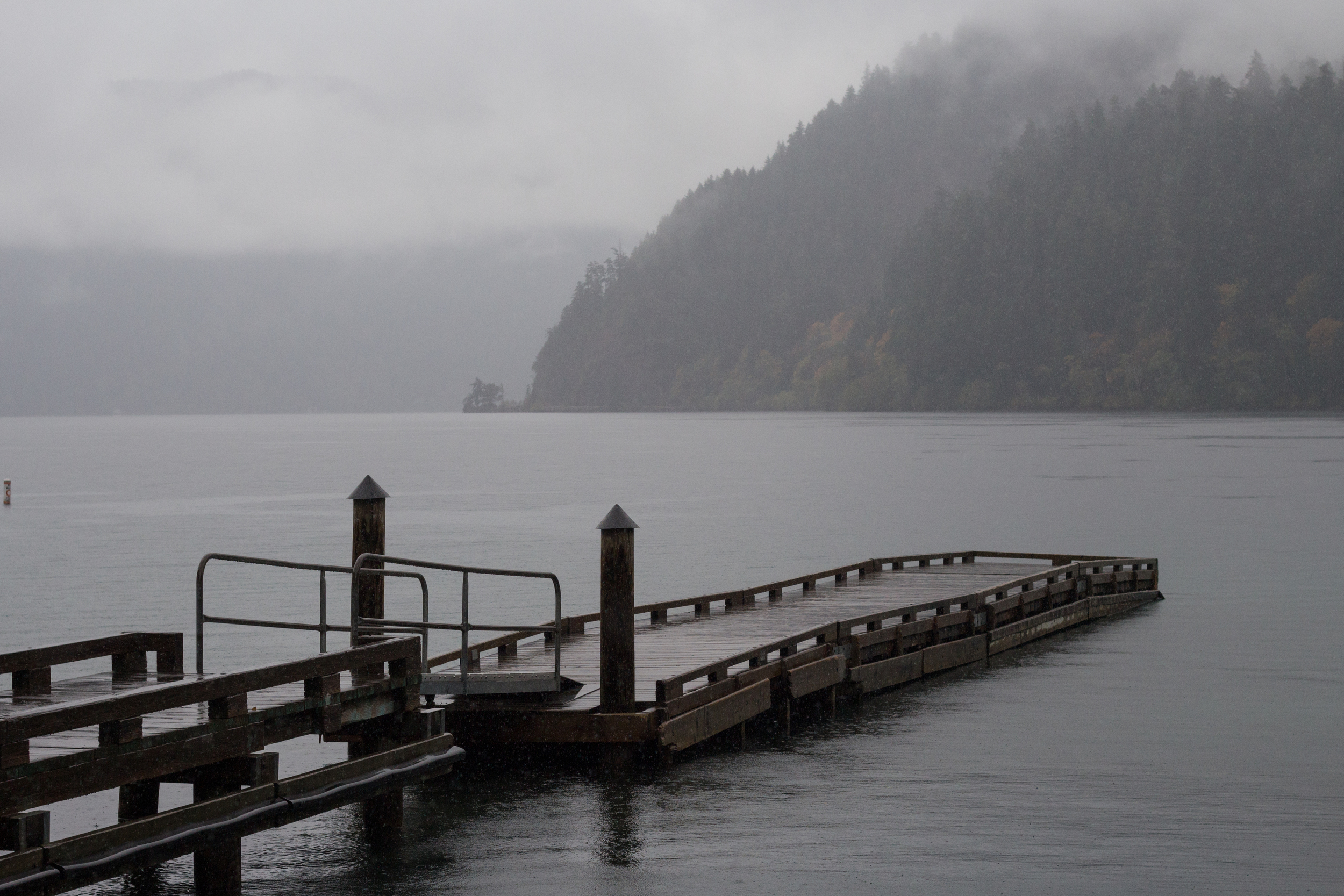
I thought Lake Quinaut was vast and mirror-like until we arrived at Lake Crescent on a cloudy day. The glacial lake emerges suddenly from between overlapping mountains and draws the eye forward like an arrow to the horizon. As time ticked by, fog rolled down nearby Storm King and blanketed the towering sentinel firs around us in gray. On a clear day, the waters are so clear you can see dropped coins and sunken boat tethers at the bottom. On this drizzly morning, all we saw were shifting pinpricks of rain breaking the tension of the lake.
HURRICANE RIDGE
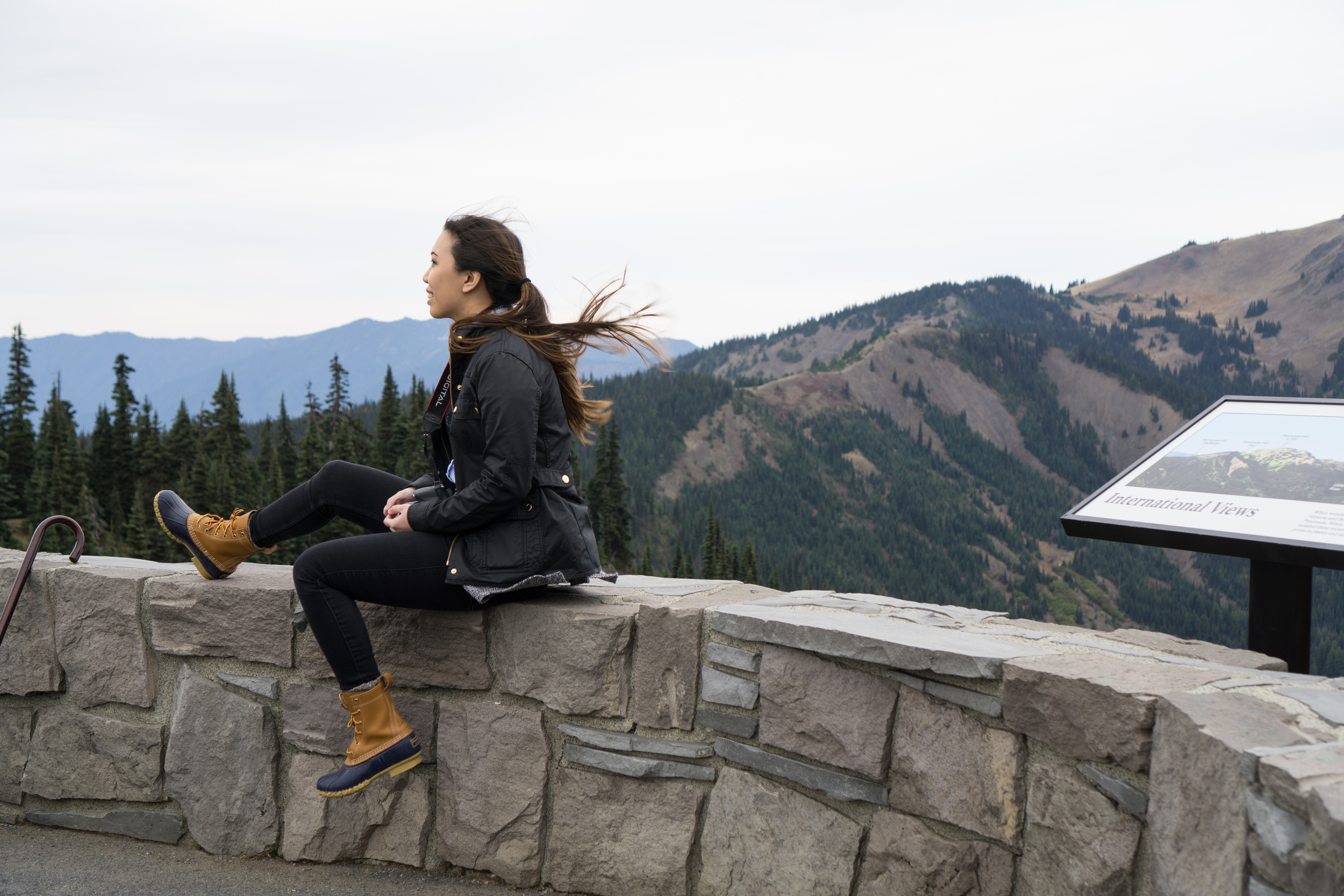

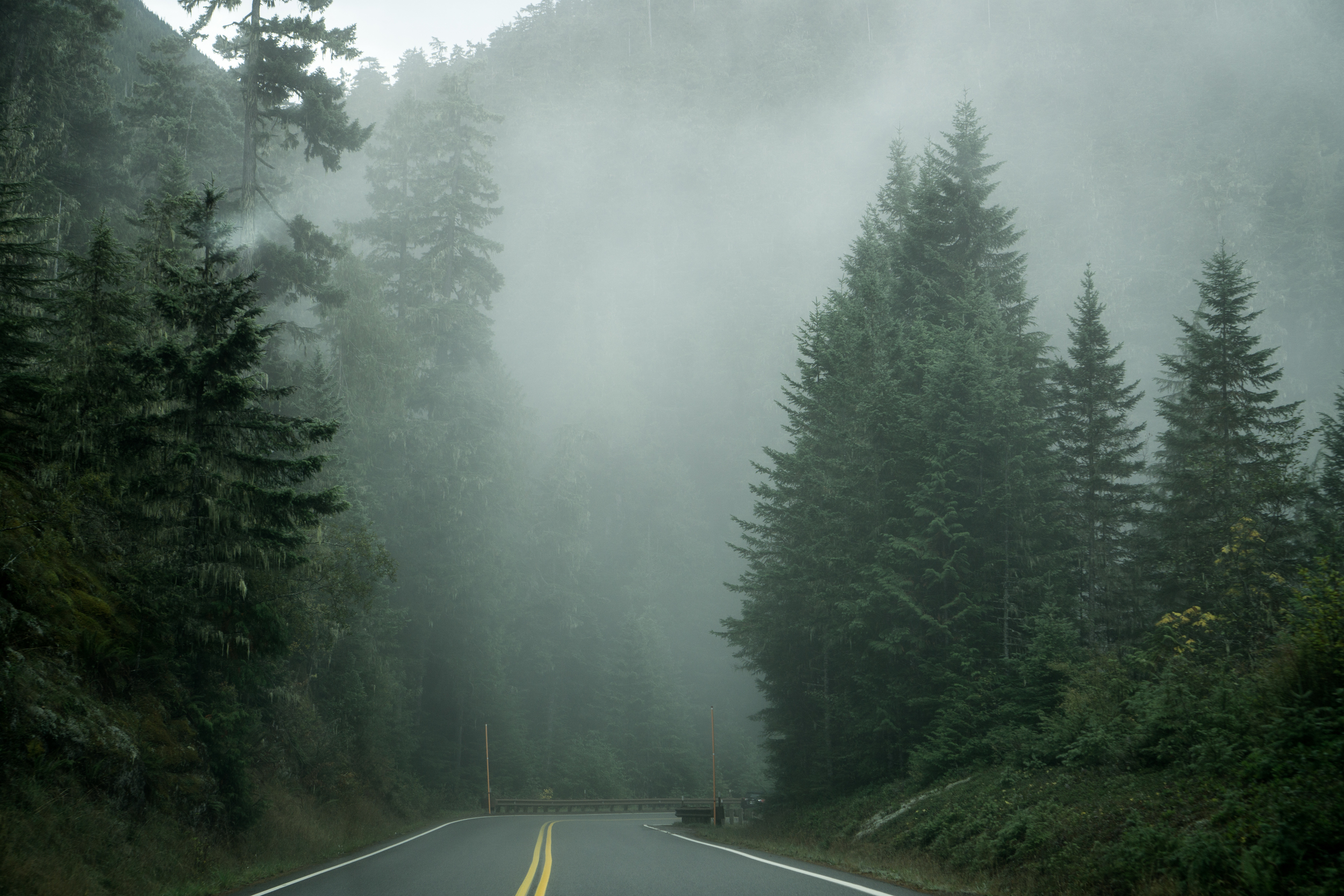
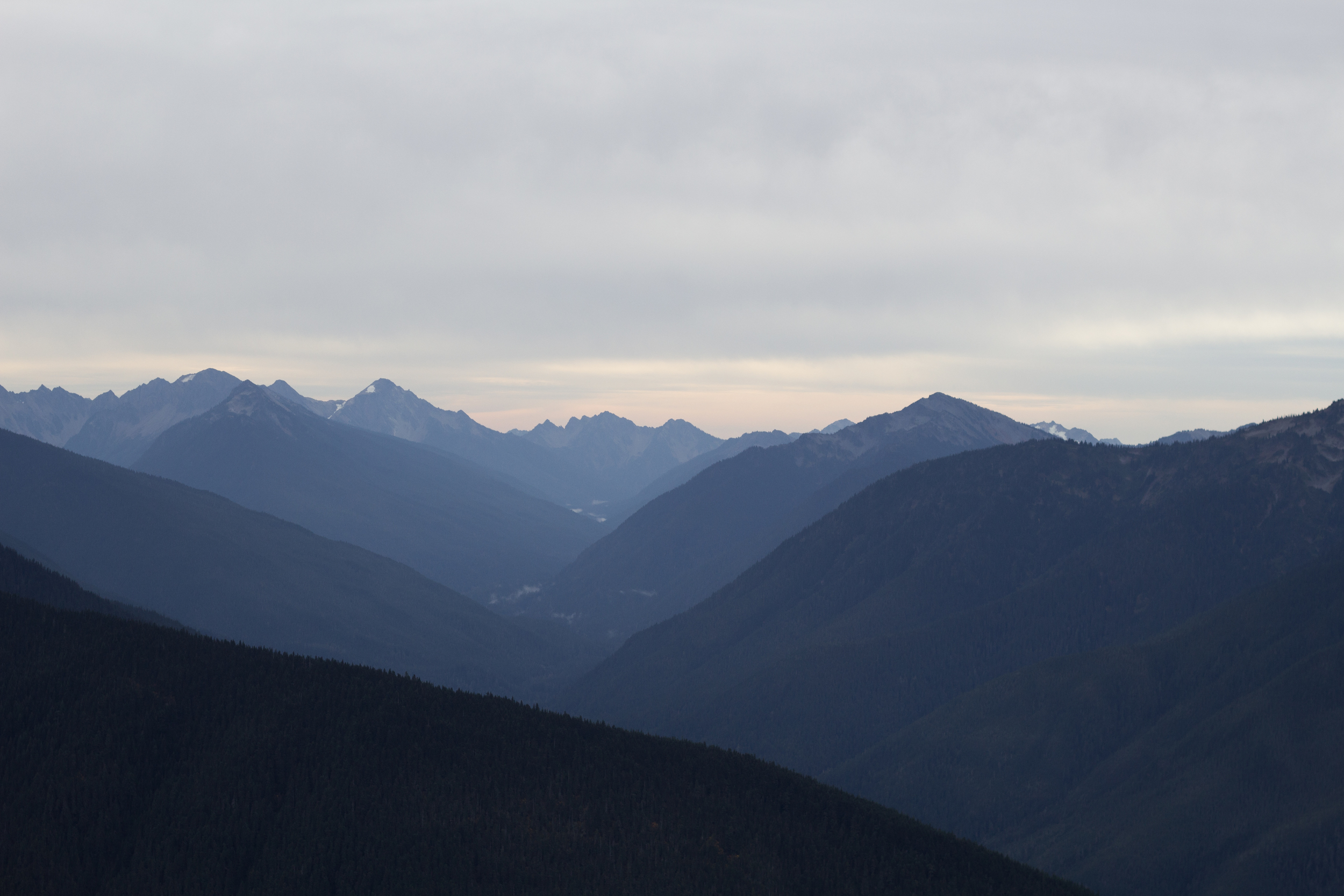
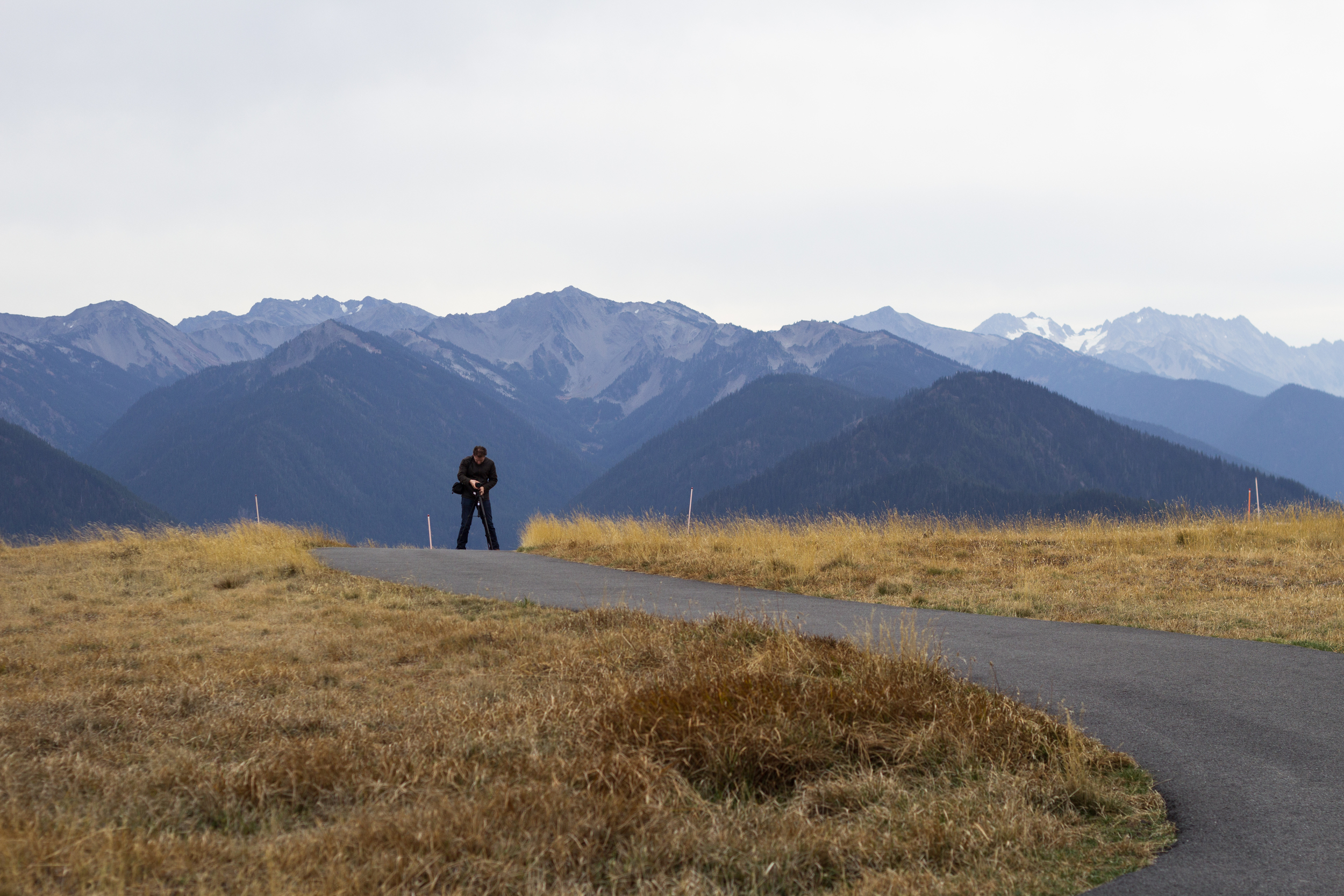
And lastly, the mountains called. We took the steep and nerve-wracking road up to the lookout on Hurricane Ridge, made a little easier by the low center of gravity and the stability of our rental Mustang. There was little snow covering the peaks this time, as it was a drier, warmer October, so we were greeted by an unobstructed view of the ridge's gently gradated blue peaks rolling like waves into the distance.
As tough as it is to tear oneself away from a place like the Olympic Peninsula, a reluctant departure is inevitable for the itinerant traveler. And when it happens, the only consolation is the knowledge that the visitor has ideally perhaps developed a humbled awareness of their smallness in the universe. These forests are ancient. The lakes are prehistoric. Older still are the mountains that once cradled glaciers that came to fill their deep valleys. Older are the rocks that punctuate miles of wild coast, and even older are the pinpoints of brightness that spin above the land in the night, a dome of diffuse starlight. But for me this is enough. No grand changes, no earth-shaking discoveries necessary. Maybe to know such extraordinary and liberating insignificance before the foundations of the Earth is never to leave the great Northwest.

![The Edge of the Earth [2/2]](https://images.squarespace-cdn.com/content/v1/553f9ffbe4b06d466cd3f781/1454616092589-O1PDY1VKSO9OUYU2DBQW/image-asset.jpeg)